|
Happy 2013! People usually avoid the number 13 if they are superstitious, but for the UCF College of Medicine 2013 is going to be a great year.
The next six months will include more “firsts” for our college. In February we will get the report from the LCME about our first full accreditation. This accreditation is usually for eight years, but the clock for new schools begins when preliminary status is awarded. For us, that date was 2008, so an LCME site team will be back at UCF in the fall of 2015 for consideration of re-accreditation in 2016. Thereafter we anticipate seeing them less frequently.
Also in February our Charter Class will make their lists for the National Residency Match Program, and in March they/we will learn where they will spend the next three to seven years of their lives. On May 17, we will award the M.D. degree to those Charter Class students who have successfully completed their requirements, and in August, the Class of 2017 matriculates. This class will have 120 students, the full class size for our college. By August 2016, we will be at full enrollment, with a total of 480 doctors-in-training.
“Wow!” seems like an understatement to all these milestones. And we have much work ahead as we continue our development. I am certainly indebted to our affiliated institutions and each of our 2,043 affiliated and volunteer faculty members. Our affiliated institutions have provided excellent infrastructure for the clinical training of our third- and fourth-year students, and your individual efforts with modules, clerkships, advising and mentoring have allowed our students to excel in all categories.
Students continue to surpass the national average on the National Board of Medical Examiners (NBME) subject exams in the third year and our Charter Class scored nine points above the National Mean for Step 2, Clinical Knowledge (CK) of the United States Medical Licensing Examination (USMLE). In addition, all of our Charter Class members passed the Clinical Skills (CS) component of the USMLE, Step 2.
In addition to their academic work, students continue to excel in their research and community service endeavors.
- Students submitted 70 research posters – and won 21 awards – in a recent academic medicine poster content from Cureus, The New e-Journal of Medicine. Students’ topics ranged from transplantation to public health and our number of submissions “beat every medical school in the world,” including Stanford, University of Washington, Vanderbilt, Harvard, Johns Hopkins, Yale and Case Western, according to Cureus President Tobin Arthur.
- Over the holidays, students, faculty and staff produced our first “Music under the Stars” event, featuring song, dance, artwork and story-telling. The artistic endeavor was the brainchild of first-year medical student Michael Metzner, whose FIRE (Focused Individualized Research Experience) project is working with Nemours Children’s Hospital to study whether participation in musical activities reduces stress hormone levels in children with sickle-cell anemia.
- Another student, M-2 Erin Purdy, is using her FIRE project to create a program with the United Nations to vaccinate 500 children against killer pneumococcal infections, measles, rotavirus and polio.
- Our MedPACt (Medical Students Providing Across Continents) organization held a statewide Global Health Conference this past weekend, which included presentations from renowned emergency medicine expert Dr. Eric Noji and speakers from the American Red Cross, who responded to Hurricane Sandy. This conference included the first community-wide lecture series on global health in an effort to create a network of people across Central Florida who are interested in this important work.
As we look to the future, we are focused on improving the pedagogy of our program, particularly in the first and second years by reducing didactic presentations, increasing interactive and self-learning venues, enhancing the important longitudinal curricular themes and developing interprofessional health practice content with other disciplines such as nursing and pharmacy.
As part of that effort in the New Year, I would encourage you to consider becoming a preceptor for the Community of Practice(COP) module, a longitudinal clinical experience for first- and second-year students. In addition to bringing youthful energy to your practice, teaching pre-clerkship students enhances preceptor’s morale and makes positive changes in a practice’s infrastructure (Med Educ. 2001; 35:901-908). Students also impact preceptors’ clinical skills and practices by increasing the physician’s focus on the process of care and encouraging greater self-reflection and mindful practices (Acad Med. 2011; 86:846-852).
Dr. Analia Castiglioni (bottom photo) recently joined the COP module leadership team from the University of Alabama at Birmingham. She is a fellowship-trained clinician educator and internist who practices at UCF Health, our physician practice. Dr. Castiglioni has a passion for medical education and clinical skills. With her arrival, we are asking clinical faculty to participate in a short survey at https://www.surveymonkey.com/s/J8NN3SL. The survey will provide feedback on ways we can better support our preceptors, students and curriculum. Please provide your feedback through this survey or by contacting Dr. Castiglioni (analia.castiglioni@ucf.edu).
As 2013 begins, we continue to approach our work with a spirit of partnership and community service. And your efforts, as affiliated and volunteer faculty members, are key to our success! Thank you so much. Pep
|
|

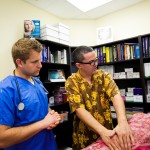

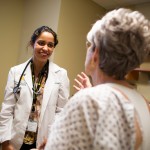
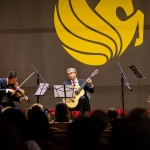
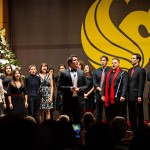
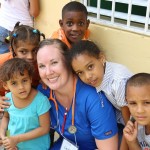

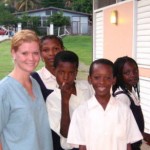
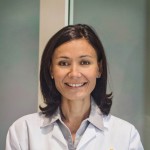
|